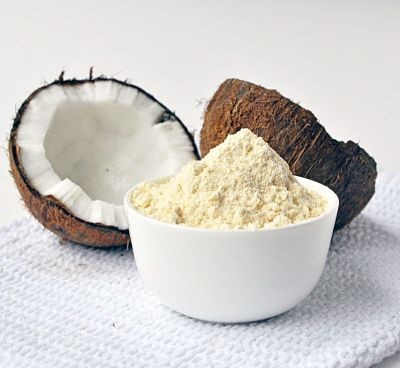Coconut flour is gluten-free, contains saturated fats, fiber and protein, among other health-beneficial properties.
Furthermore, as a flour, it contains fewer carbohydrates than other flours: 501 t/w of the weight, compared to 741 t/w of wheat flour. For this reason, it can be considered a low-carbohydrate food.
This food contains an average of 30% of fibre. It is a good supplement to reach the daily minimum of 30 g that an adult should consume; that is, double the amount consumed by the average population. Fibre is associated with an optimal weight and a lower risk of colon cancer, cardiovascular diseases, strokes and heart attacks, and diabetes.
Benefits
- Rich in protein, minerals, fat and fiber, this is how it becomes a satiating flour.
- It is rich in minerals such as Magnesium. This mineral acts as a nutrient in bone health, the nervous system and the thyroid glands.
- It contains a high amount of lauric acid, a saturated fat that acts as a system stimulant.
- Its coconut scent is very soft and almost imperceptible, which allows even those who are not coconut lovers to use it.
- Due to its high fiber content, the glycemic index is very low, helping with obesity and diabetes problems.
→ Recipe: Bread with coconut flour
Gianella Pedemonte
Bachelor of Nutrition
